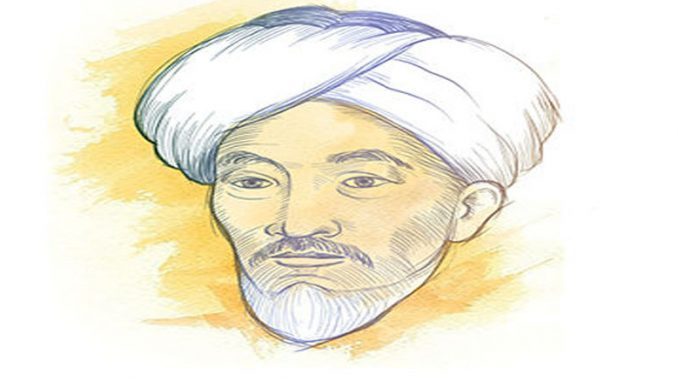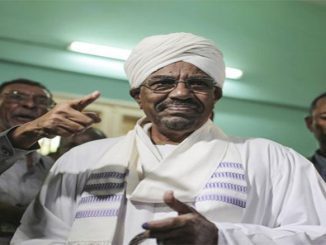
 BY: İBRAHIM KALIN*
BY: İBRAHIM KALIN*
As Al-Farabi combines the major strands of the Islamic intellectual tradition, his prayer is of particular importance not only for the students of Islamic philosophy but also for anyone interested in the relations between philosophical thinking, logical rigor and spiritual refinement
How does a philosopher pray to God? At one level, it is not different from any other prayer. In essence, all of us regardless of our profession, training or expertise seek spiritual proximity to God. But at another level, each prayer also reveals something about who we are.
Praying is a serious matter. It requires the full presence of the person who prays. It is the most intimate and personal way of communicating with God. It is the meeting of the finite with the infinite, the mortal with the immortal, the servant with the Lord.
All religious traditions have emphasized the significance of prayer in one’s spiritual life. The Islamic tradition is probably one of the richest in prayer literature. This is natural given the fact that the Quran and the Prophet teach us how to pray to God. The most beautiful and profound prayers reflect God’s infinite mercy and the multiple stages of the human state. As the Prophet Muhammad said, “prayer is the essence of worship.”
Prayer is generally comprised of three parts. The first is where one praises God’s absolute power and infinite mercy. The second is where one states one’s ultimate “poverty” and dependence on God. The third part is where one asks God directly for His blessings, trust, friendship and protection.
Just as each individual is unique, so is his supplication to God. The same applies to the philosopher who sees God both as a personal Being and the cause of all causes and the source of all beings. Some philosophers have put down their prayers on paper. Each reflects the philosopher’s particular point of view and how he sees God, the Supreme Being, in relation to the world of creation. They are a testament to one’s gratitude for “existing” in the first place. The claim that the philosophers have turned the personal God of the Abrahamic tradition into an onto-cosmological principle to whom one cannot pray is thus largely unfounded. Muslim philosophers have maintained a delicate balance between God as the Lord of the Universe and God as the Cause of all causes. The 99 names of God through which we pray to Him reveal His infinite majesty and beauty and guide us in our search for spiritual proximity and fulfillment.
Al-Farabi (872-950), one of the greatest minds of all times, has left us a short prayer that reveals this particular outlook. Known as the Second Teacher after Aristotle, al-Farabi was a philosopher, logician, political thinker, cosmologist as well as a musician. As he combines the major strands of the Islamic intellectual tradition, his prayer is of particular importance not only for the students of Islamic philosophy but also for anyone interested in the relations between philosophical thinking, logical rigor and spiritual refinement.
(The prayer, called the “Supreme Prayer” (Du’a azim), was critically edited and published by M. Mahdi based on a manuscript in the Suleymaniye Library in Istanbul in the book al-Farabi, Kitab al-millah ve nusus ukhrah, Beirut, 1986, pp. 89-92. Below is an English translation with a short commentary.)
Al-Farabi’s prayer weaves together the theological and philosophical-cosmological principles of God as the Creator. God is the Necessary Being and the Cause of all causes. He is the one who grants existence to the world of creation out of His infinite mercy, thus making existence a divine blessing. Any prayer has to begin with acknowledging this fundamental fact:
“O the Necessary Being, the Cause of causes, the Eternal that never ceases to exist! I ask Thee to protect me from errors and make my goal the action that pleases Thee.
O the God of the East and the West! Grant me all the noble traits, bless me with the best of outcomes in my deeds and render successful my intentions and goals.
Poem:
O the Lord of the seven stars that flow in the universe like pouring rivers,
The stars that perform their acts with His will
whose blessings have encapsulated all substances…I ask for goodness not from Saturn, Mercury or Jupiter but only from Thee.”
These ontological and cosmological principles do not hang up in the air; they are tied into man’s place in the great chain of being. After each reference to God as the ultimate source of all things, al-Farabi offers a specific prayer and asks for beauty, forgiveness and nobility:
“O God! Dress me with the clothes of beauty, the nobility of the Prophets, the happiness of the spiritually rich and content, the knowledge of the sages and the humility of those who fear and venerate Thee.
O God! Save me from the world of unhappiness and extinction and make me one of the brothers of purity, people of fidelity and a dweller of the heavens together with the righteous and the martyrs.”
Al-Farabi is fully aware of the fact that there is no salvation without the truth. He thus asks God to show him the reality of things as they are and lead him to the truth:
“You are the God other than whom there is no God, the Cause of all things and the light of the earth and the heaven. O the One with Majesty and Excellence! Bestow upon me an emanation from the Active Intellect, polish my soul with the light of wisdom, allot me as gratitude what You have allocated for me as a blessing. Show me the truth as truth and inspire me to follow it. Show me the falsehood as falsehood and forbid me from believing and following it. Refine my soul with the clay of the hyle (the first matter). You are the Primary Cause!”
“O the Cause of all things from which all beings emanate,
The Lord of the layered heavens who placed the earth and the seas in their center,
I seek your forgiveness and your refuge as a sinner,
Forgive the mistakes of this sinner and negligent (servant),
With your grace, the Lord of all things, purify my (essential) element from the dirt of the world of nature and the elements.”
God is infinite and abundantly merciful but the servant, i.e., al-Farabi, the philosopher, is weak and needs divine guidance and protection from the temptations of bestial desires and worldly yearnings:
“O the Lord of the celestial individuals, spherical elements, heavenly spirits! This servant of yours has succumbed to human desires and the love of the desires of the lowly world. Make your protection safeguard me from error, your fear and veneration shield me from extremism. Verily, You have encircled everything.
O God! Save me from the prison of the four elements and take me to your side, wider than all, and your proximity, loftier than all.
O God! Make the self-sufficiency that You grant me a reason to cut the blameworthy relationship between me and the earthly entities and the worries of the world of creation. Make wisdom a cause to unite my soul with the divine worlds and heavenly spirits.
O God! Revive my spirit with the Noble Spirit, impact my intellect and senses with the supreme wisdom, and make the Angels my companions rather than the world of nature.
O God! Give me guidance, fasten my faith with your consciousness and fear, and make me loath the love of the world.
O God! Give me strength against fleeting desires, take my soul to the abode of the enduring spirits, and make it a member of the high and noble substances in the sublime paradises.”
The philosopher praises God in His full beauty and majesty and exalts His infinite mercy for granting existence to all beings including humans. All beings praise God but people fall short of understanding this cosmological prayer. It requires higher epistemological tools by which one can see and appreciate what does not reveal itself at first sight. It calls for the eye of the heart to see:
“I praise Thee, the One who precedes all beings that speak the language of the spiritual station and the tongue. You give each being its due with wisdom and grant them existence as a grace and mercy in view of their non-existence. All essences and accidents deserve your grace and praise the virtues of your blessings. And there is not a thing except that it exalts [God] by His praise, but you do not understand their [way of] exalting (Qur’an, Isra 44).
O God! I praise Thee. You are the One, the Single and the Eternal “who neither begets not is begotten and there is nothing comparable to Him (Qur’an, Ikhlas 3-4).”
The last part of al-Farabi’s prayer is probably the most intense as he begs God to purify his soul, protect from error and lead to the truth. The supplication is as simple as it is powerful:
“O God! You have imprisoned my soul in the prison of the four elements and delegated the task of tearing it apart to the predatory animals filled with bodily desires.
O God! Renew it with chastity, have mercy on it in a way that behooves Thee. Help it with an effusing magnanimity that comes from Thee in the most appropriate way. Grant it the repentance that belongs to the celestial world. Hasten it to return to its noble station. Pour over its darkness a flash of the sun from the Active Intellect. Move it out from the darkness of ignorance to the light of wisdom and the brightness of the intellect. God is the guardian of those who believe and brings them out from darkness into light (Qur’an, Baqara 257).”
No matter how intelligent and talented a person is, he needs divine guidance to resist the temptations of the flesh. Reason alone is not enough; one needs a strong will for moral integrity and spiritual refinement. This is how al-Farabi ends his supreme prayer:
“O God! Show my soul the true forms of the invisible in its dreams and transform it from seeing nightmares to seeing goodness and veritable glad tidings in its dreams. Clean it from the dirt that has afflicted its senses and delusive imagination. Remove from it the muddiness of the natural world. Place it in the world of descending noble souls.
O God who has led me (to the straight path), who has sufficed me, who has sheltered me!
Praise is to God alone and blessings and peace are to (the Prophet Muhammad) after whom there is no prophet.”
Amen!
*Ibrahim Kalin is the spokesperson for the Turkish presidency.
(Published in Daily Sabah Turkish newspaper on Friday, Jan. 6, 2016)



